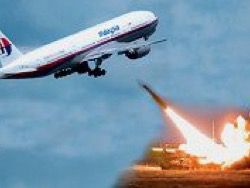Die Welt: airlines are afraid of the Russian rockets

The international aviation organizations are concerned because of application by Russia of cruise missiles in the Syrian conflict. Therefore the European agency on aviation safety (EASA) published now information on safety for the airlines using air space over the Caspian Sea, Iran and Iraq. Some of the most used ways from Europe to the Middle East and to the Southern Asia pass through it.
Air France, according to the recommendation of the management of safety, took on October 10 precautionary measures for flights over Iran and the Caspian Sea. Nevertheless, for safety reasons, they did not call any additional details. Now, Air France do not fly over Yemen, the East of Ukraine, Syria, Iraq and Libya, the airline declared. The safety department also disposed, that planes observed a buffer zone between a bespoletny zone and routes.
Flights over crisis areas disturb airlines
Flights over crisis areas are now one of the biggest problems for aviation safety, the chairman of EASA Patrick Kai at the end of the last week before association of the French space journalists of AJPAE in Paris declared. Because there is a risk of that the passenger plane, as MH17 Malaysia Airlines in July of last year over Ukraine the class "earth air" rocket will be brought down. In that tragedy in the matter of which the state security agencies of the Netherlands on Tuesday plan to publish the final report, 298 people – passengers and the service personnel, mostly – citizens of the Netherlands were lost.
This week, Russia declared that let out rockets from the ships in the Caspian Sea on objects in Syria at distance of 1500 km. «Before such cruise missiles reach Syria, they inevitably cross air space over the Caspian Sea, Iran and Iraq under aviaroutes which are used by commercial airliners», is told in the Instruction issued on October 9 on safety of EASA.
The usual height of flight of the passenger plane makes from 30 000 to 40 000 foots, that is 9-12 thousand meters. If a radar does not find cruise missiles, then they fly at very low height below 200 meters, that is is much lower, than passenger planes.
According to the government of the USA, four of 26 rockets let out by Russia, were incorrectly directed, therefore they struck across Iran. Nevertheless, the government of Russia denies it. Before MH17 was brought down in July of last year over Ukraine, the Ukrainian authorities declared safe air space at height of 9750 meters. MH17 flied on 250 meters above.
The situation over the Caspian Sea can worsen at any time
EASA declared in recently published not to the obligatory Instruction on safety that it has no special recommendations for airlines which carry out flights through air space over the Caspian Sea, Iran and Iraq. However, they will add the Instruction on safety when will receive additional information on a situation in the affected region. The situation in the region can change at any time, the press secretary of EASA declared.
The International Civil Aviation Organization of the United Nations (IKAO), in turn, by data «The Wall Street Journal», warned about «possibility of existence of serious risks for safety of the international civil flights» in wider air space of Baghdad, Damascus and Tehran. Some airlines chose alternative routes during time and after start of the Russian cruise missiles. Corresponding changes in plans of flights can lead to more dense traffic on alternative routes and, thus, affect capacity of air space.
On Flightradar24 on Sunday it was possible to observe that airlines continue to use popular routes in the southwest of Iran, and also to fly through the Caspian Sea. At the same time some airlines choose alternative routes through Saudi Arabia and Egypt. According to the last data, there is no need to resort to alternative routes, the press secretary of Lufthansa told. But, generally the situation is unstable. Therefore Lufthansa is in continuous exchange of information with German and European bodies on aviation safety in order that be able react if that will be demanded by a situation.
Over Syria Lufthansa more in any case does not fly, as well as other European airlines. According to sources in branch, the European organization on safety of air navigation of Eurocontrol on Saturday conferred with the European airlines in a mode of telephone conference about a situation after expansion of the Russian rockets in Syria. The same as EASA, they very much watch closely a situation in the restless region.
Bodies of the USA receive investigation information
EASA communicates with the American colleagues from the Federal Aviation Administration. Unlike bodies on aviation safety of the USA which the American investigation warns about the corresponding dangers in crisis regions, EASA in Europe deals at once with many investigations. Thus it is necessary only on good will of the separate countries, to share the data that the agency could warn the European airlines, the chairman of EASA Kai to journalists of AJPAE told. Because intelligence services and their data for the states are a sovereignty question.
One more problem, according to Kaya, is the program a code Schering. «If the European passenger buys the ticket, for example, in Air France or Lufthansa, he recognizes that safety standards in planes will be respectively high», he speaks. But can happen that it will use then non-European airlines.
«We want to be convinced that the European passengers when flying about a code Schering, have the same standards of safety as in the European airlines», the chief of EASA speaks. As an example he gave an alternative route not to fly by over Syria. While the European airlines will not do it any more, on Flightradar it is possible to see that the airline, the member of alliance SkyTeam, still flies over Syria. But if it is a question not of the European airline, EASA had no other exit.
To Gesh Vyupper










